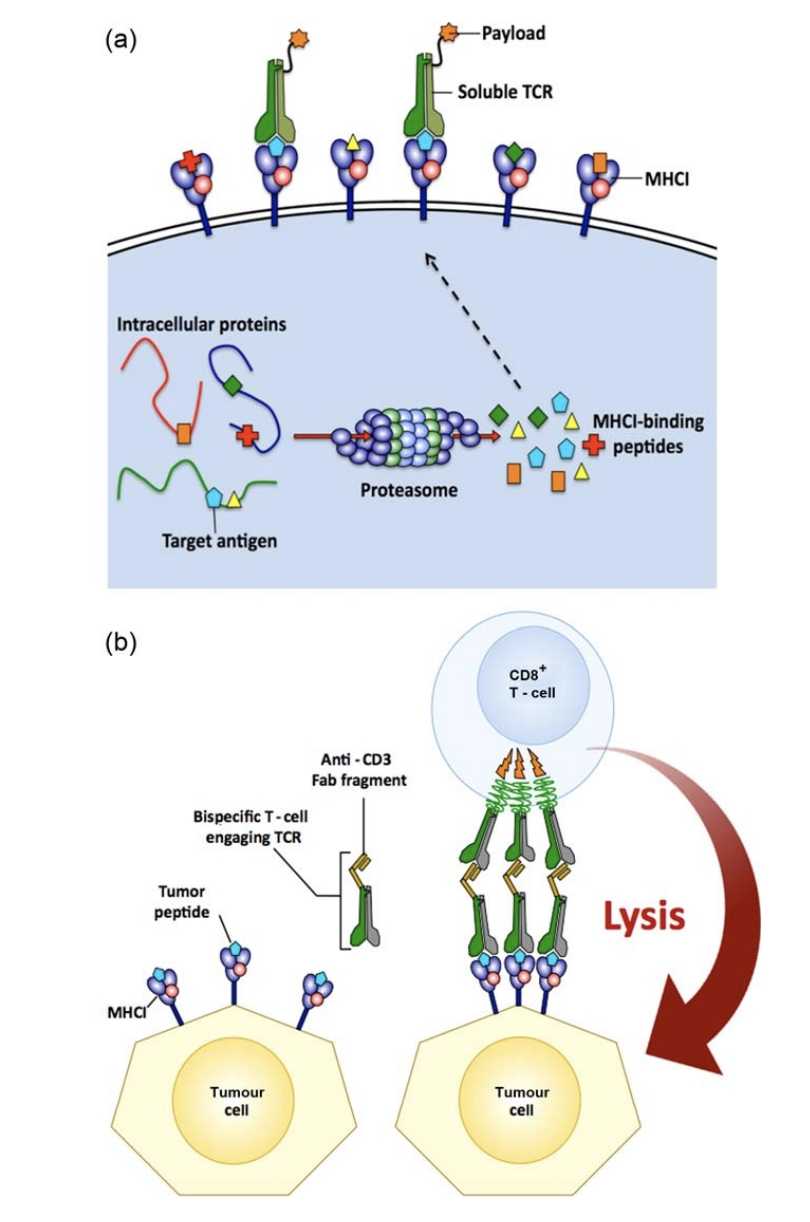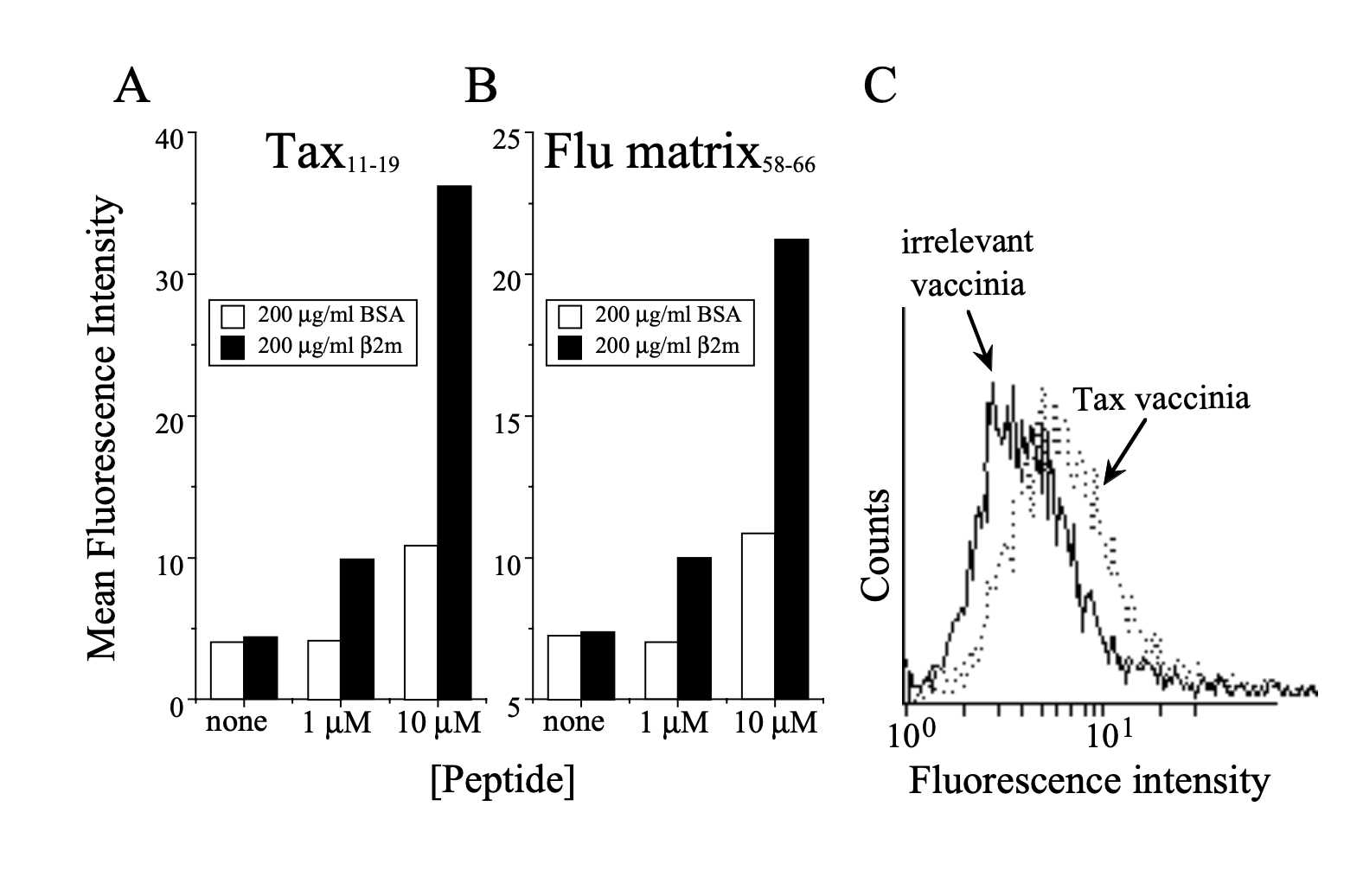Soluble T Cell Receptor (TCR) Production and QC Service
As a leading preclinical CRO, Creative Biolabs is proud to present our soluble T Cell Receptor (sTCR) expression and purification services. We are dedicated to providing our clients with cutting-edge scTCR products and the associated reagent support they need. We use a state-of-the-art expression system to ensure the efficient expression and high-purity extraction of sTCR. Whether you require sTCR expression for a specific target or have unique purification specifications, we can offer customized solutions to suit your needs.
Introduction
In the past few years, the expression and purification techniques for sTCR have gained increasing attention as essential tools in the study of tumor immune responses. Creative Biolabs boasts extensive experience in genetic engineering, allowing us to design and synthesize target sTCR genes tailored to client specifications. We optimize gene sequences to enhance their expression efficiency in host cells. Our laboratory offers the selection of suitable host cells for sTCR expression, including E. coli, yeast, insect cell lines, or mammalian cell lines. Additionally, we implement efficient transfection methods to ensure the production of large quantities of sTCR. We also optimize expression conditions to maximize yield and activity.
In addition to the expression and purification of sTCR, we also offer functional assessment services to help you gain a comprehensive understanding of the biological characteristics of sTCR, facilitating the advancement of your subsequent research.
 Fig.1 sTCR Therapy.1,3
Fig.1 sTCR Therapy.1,3
Services
Recently, Creative Biolabs has established a one-stop technical platform for the design, expression, and purification of sTCRs. Our sTCR products are designed to accurately identify specific antigens, enhancing treatment specificity and minimizing damage to normal cells. By optimizing the structure of sTCRs, we can also improve T cell activation and boost the efficacy of tumor cell elimination.
- sTCR Construction Services
Creative Biolabs offers comprehensive gene construction services for sTCR, including:
- sTCR Gene Synthesis: We design and synthesize suitable sTCR gene sequences based on the antigen information provided by our clients.
- Plasmid Construction: The synthesized sTCR gene is cloned into appropriate expression vectors to facilitate subsequent cell transfections or gene editing operations.
- sTCR Expression Services
With our advanced cell culture technologies, we provide various expression systems to achieve efficient sTCR production:
- Prokaryotic Expression: sTCR is expressed in E. coli, suitable for small-scale production and initial protein activity verification.
- Eukaryotic Expression: We use mammalian cell lines like HEK293 and CHO for sTCR expression, ensuring proper protein folding and modifications.
- Transgenic Mammalian Cell Lines: We establish stable cell lines for large-scale sTCR production.
- sTCR Purification Services
Our service team employs multiple separation and purification techniques to deliver high-purity sTCR proteins:
- Affinity Chromatography: Utilizing His-tags or other tags for affinity purification based on the properties of the sTCR to enhance target protein purity.
- Ion Exchange Chromatography: Selective separation based on the charge characteristics of sTCR, achieved by adjusting salt concentrations.
- Gel Filtration Chromatography: This final purification step optimizes sTCR protein folding and removes low-molecular-weight impurities.
- Identification and Functional Analysis of sTCR
Our team offers a variety of techniques for the identification and functional assessment of sTCR:
- SDS-PAGE and Western Blot: These methods are employed to evaluate the expression levels and molecular weight of sTCR.
- Mass Spectrometry: This technique is used to determine the amino acid sequence of sTCR and to analyze post-translational modifications.
- Functional Activity Assessment: We assess the specific binding and cytotoxicity of sTCR against target cells through cytotoxicity assays and flow cytometry.
 Fig.2 FACS Analysis of Soluble TCR Binding.2,3
Fig.2 FACS Analysis of Soluble TCR Binding.2,3
Case Study
A. Case Purpose
Creative Biolabs has been investigating the interaction between tumor antigens XX and T cell receptors, laying the groundwork for the advancement of cancer immunotherapy. Our team decided to develop a specific sTCR targeting this antigen XX to facilitate further studies in vitro.
B. Design and Expression of sTCR
Initially, we have collected known T cell receptor gene sequences specific to the antigen from existing literature. Based on bioinformatics tools, we have identified key amino acids and conserved sites to ensure the specificity and binding affinity of the sTCR. Our scientists have synthesized gene fragments corresponding to the TCR, which were then cloned into an expression vector. To enhance expression and solubility, we have opted for an expression system that included signal peptide sequences and folding assist components (such as pET or pGEX) for cloning.
After inducing expression in Escherichia coli using IPTG, we optimized the culture conditions to successfully achieve a high yield of sTCR.
C. Purification Process
At Creative Biolabs, the purification of sTCR involves several key steps:
1. Cell Lysis: Following the collection of expressing cells, we ruptured the cells using either ultrasonic disruption or chemical lysis to release the sTCR.
2. Precipitation and Initial Purification: We removed cell debris through centrifugation and then concentrated the target protein using salting-out methods or dialysis.
3. Affinity Chromatography: For more refined purification, our labs employed Ni-NTA or GST affinity columns to eliminate impurities. Based on the properties of sTCR, we typically select a purification approach that utilizes a tag (such as His or GST) for binding.
4. Tag Removal: If necessary, our staff has processed the sTCR with a cleavage enzyme like TEV to remove the tags introduced during affinity purification.
D. Results
In this study, we have expressed and purified high-purity sTCR protein in Escherichia coli by optimizing the expression conditions. The SDS-PAGE analysis has demonstrated that the purity of the sTCR exceeded 95%. Additionally, further Western blot experiments have confirmed the specificity of the target protein.
Advantages
- Efficient Expression System: Our system not only enhances expression efficiency but also ensures proper protein folding and functionality, laying a solid foundation for subsequent scTCR applications.
- Well-mature Services: We offer customized design and optimization services for sTCRs based on our client's specific requirements. Whether it involves designing TCRs targeting particular antigens or optimizing the functionality of specific domains, we can provide personalized solutions to meet diverse research and clinical development needs.
- Advanced Purification Techniques: We employ efficient affinity purification and chromatography methods to ensure that sTCR retains its bioactivity throughout the purification process. Our purification procedures effectively remove impurities, guaranteeing high purity and stability of the final product.
- Expert Team Support: Our team comprises experts in biology, immunology, and biochemistry, with extensive experience in research and production. We offer professional guidance and support in project design, troubleshooting technical challenges, and ensuring product quality control.
- Rapid Turnaround Times: While maintaining high quality, Creative Biolabs is capable of shortening project turnaround times, thereby enhancing our clients' research efficiency. Flexible production schedules and responsive mechanisms enable clients to receive experimental results sooner.
- Compliance with International Standards: Our services adhere to a stringent quality management system that complies with international standards and regulations. This ensures the reliability and efficacy of the scTCR products provided for research and clinical applications.
Creative Biolabs ensures the production of high-yield, high-activity sTCRs under various experimental conditions. We employ a range of chromatography techniques, including affinity chromatography, ion exchange chromatography, and gel filtration, to guarantee the high purity and activity of sTCR proteins. Whether it's for small-scale experiments or large-scale production, we offer flexible and efficient solutions. Our comprehensive quality control system includes, but is not limited to, SDS-PAGE, SPR analysis, and functional assays, ensuring the reliability and consistency of each batch of scTCR products. If you're interested in our sTCR expression and purification services or have any questions, please feel free to reach out to our team at any time.
- Attaf, Meriem, et al. "The T cell antigen receptor: the Swiss army knife of the immune system." Clinical & Experimental Immunology 181.1 (2015): 1-18.
- Laugel, Bruno, et al. "Design of soluble recombinant T cell receptors for antigen targeting and T cell inhibition." Journal of Biological Chemistry 280.3 (2005): 1882-1892.
- Distributed under Open Access license CC BY 4.0, without modification.
For research use only. Not intended for any clinical use.
This site is protected by reCAPTCHA and the Google Privacy Policy and Terms of Service apply.



